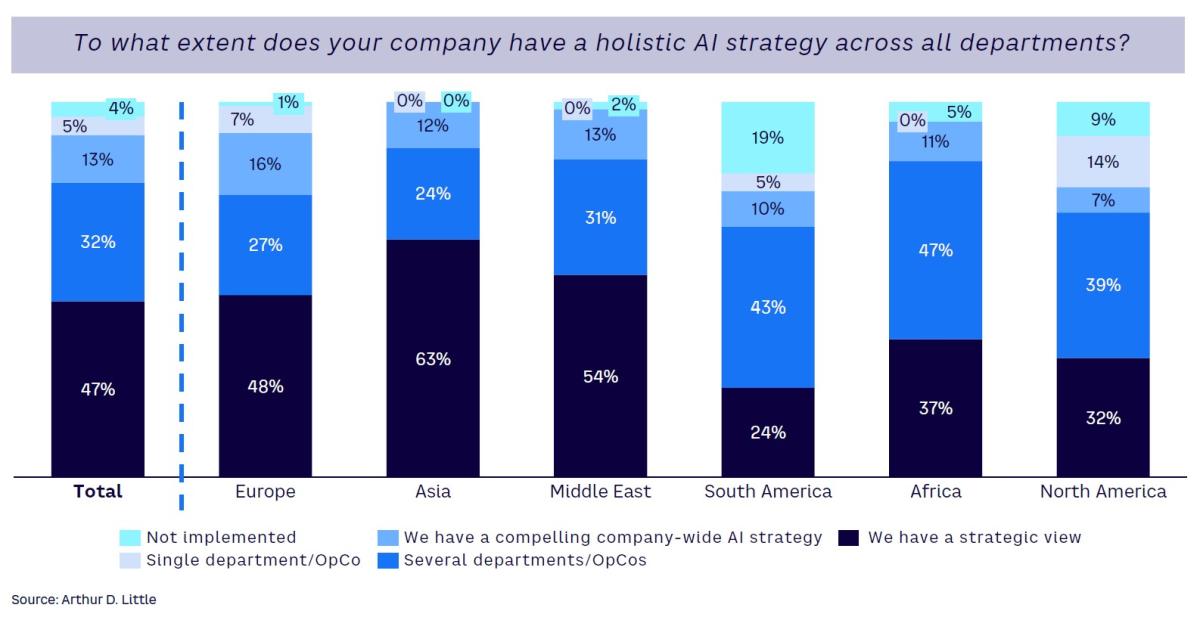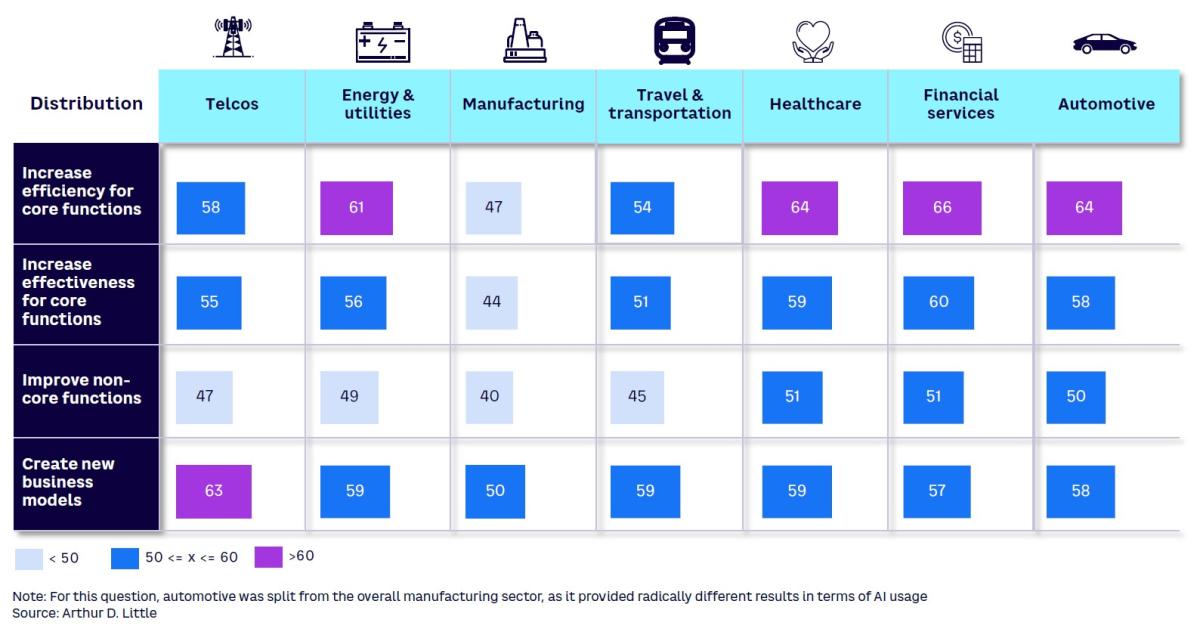As part of its ongoing series of flagship CEO Insights research studies, Arthur D. Little (ADL) recently published its 2024 edition: “Positive in an Uncertain World: Confident CEOs Reskill Companies for AI-Driven Growth.” In this Advisor, we explore a key trend revealed through research analysis: AI use is on the rise, particularly for increasing efficiency and effectiveness, but challenges remain.
Embrace AI to Achieve Growth Ambitions
Since 2023, AI usage has accelerated dramatically. To measure CEO attitudes, this year’s study introduced new questions around AI and its adoption. In many ways, progress has been swift — 96% of executives claim to have implemented an AI strategy within at least one department of their organization, with 47% having a strategic view toward AI.
However, just 13% have adopted a comprehensive company-wide AI strategy, demonstrating that they are still on a transformation path to fully understand the impact of AI and integrate it across the organization. In our experience, fully benefiting from AI requires enormous structural and workforce change, which is achievable only with time. There are major challenges to moving from a strategic view to a strategy and then implementing it.
Figure 1 illustrates the strongest performers by region, with 75% of companies within Asia reporting a company-wide strategy or strategic view. The strongest performers by industry and size are those in the financial services (79%) and $10 billion+ organizations (67%). A clear divide also exists between organizations that feel that they are leading their markets, where 24% have a company-wide strategy in place, and laggards, none of which have implemented such a compelling strategy.

AI Usage: Efficiency & Innovation
How are CEOs turning their AI strategies into practice? Analysis shows that they are predominantly focused on making core functions better by increasing efficiency and effectiveness, such as through automation (see Figure 2). Efficiency is the leading use case in four out of seven sectors, showing that companies are at a relatively early stage of their AI journey.

The exceptions are telcos, travel and transportation, and manufacturing, which are focusing on using AI to create new business models. However, manufacturing is clearly lagging other sectors on each performance vector, scoring an overall average of less than 50 for AI use. This can be linked to the sector’s pressing need to reskill employees, as we highlight in the next section.
“Our target is to use technology to improve operational effectiveness while cutting expenses.” — CEO, healthcare
“To predict market movements, we are using AI and machine learning, which we are using more and more for scenario analysis and predictive modeling.” — CEO, telco






